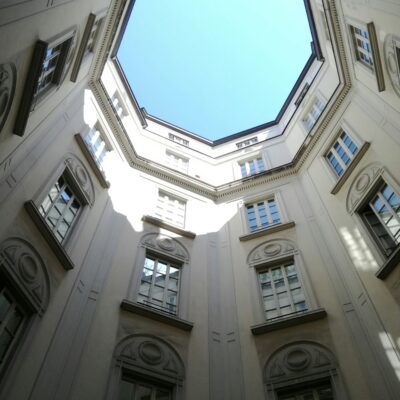Step into the world of luxury, where opulence and elegance intertwine to create a realm of indulgence like no other. From the lavish designs of high-end fashion houses to the exquisite tastes of fine dining, luxury surrounds us in various forms, tantalizing our senses and captivating our imagination. Join us on a journey as we delve deep into the essence of luxury, exploring its history, evolution, psychology, controversies, and ultimately pondering its worth in our lives. Get ready to embrace beauty and art in their most refined forms as we unravel the mysteries of this alluring world.
Defining Luxury
Luxury is more than just a word; it embodies a lifestyle of sophistication and refinement. It transcends mere material possessions and ventures into the realm of exclusivity and prestige. When we think of luxury, images of elegance, quality, and extravagance often come to mind. It’s about experiencing the finest things in life, whether it be designer clothing, gourmet cuisine, or exotic travel destinations.
At its core, luxury is not merely about price tags but rather the attention to detail and superior craftsmanship that sets it apart from the ordinary. It symbolizes status and success while also offering a sense of pleasure and fulfillment. Luxury can be found in both tangible items like designer handbags as well as intangible experiences such as personalized services at exclusive resorts.
In essence, defining luxury is akin to capturing a feeling – an emotion stirred by beauty, artistry, and exceptionalism. It’s about embracing excellence in all its forms and elevating everyday moments into something extraordinary. Luxuriate in the finer things life has to offer; for true luxury knows no bounds.
The History of Luxury
Luxury has a rich history that dates back centuries, tracing its roots to ancient civilizations where the elite flaunted their status through extravagant possessions. In Ancient Egypt, luxury was embodied by gold jewelry and lavish palaces fit for royalty. The opulence of the Roman Empire showcased in grand feasts, intricate artwork, and elaborate attire symbolized wealth and power.
During the Renaissance period in Europe, luxury evolved with a focus on craftsmanship and artistry. The Medici family in Florence set new standards of sophistication through patronage of renowned artists like Leonardo da Vinci and Michelangelo. The Industrial Revolution brought about mass production, making luxury goods more accessible yet maintaining exclusivity for the upper class.
In modern times, luxury has transcended mere material possessions to encompass unique experiences tailored to individual preferences. The history of luxury continues to evolve as society’s perceptions shift towards valuing authenticity, sustainability, and innovation in indulgence.
The Evolution of Luxury: From Material Possessions to Experiences
Luxury has come a long way from being solely about material possessions to now encompassing experiences that evoke emotions and create lasting memories. In the past, owning expensive items like jewelry or designer clothing was the epitome of luxury. However, in today’s world, people are seeking more meaningful and enriching experiences that money can buy.
Traveling to exotic destinations, dining at Michelin-starred restaurants, and indulging in spa retreats have become new symbols of luxury. It’s not just about what you own but about the moments you savor and the stories you collect along the way.
The shift towards experiential luxury reflects a deeper desire for personal fulfillment and self-expression. People are no longer satisfied with mere status symbols; they crave authenticity and connection in everything they do. This evolution highlights a cultural transformation where value is placed on intangible experiences rather than tangible goods.
As we continue to redefine what luxury means in our lives, it’s clear that the journey towards true opulence now lies in creating unforgettable moments that enrich our souls and elevate our spirits beyond mere material possessions.
Understanding the Psychology of Luxury Consumption
Luxury consumption goes beyond just owning expensive items; it delves into the realm of emotions and desires. The psychology behind luxury can be complex, with factors like status, self-esteem, and social comparison playing pivotal roles in driving consumer behavior.
For many individuals, purchasing luxury goods is a way to showcase their wealth and social standing. It’s not just about the product itself but also about the statement it makes to others. The desire for exclusivity and uniqueness often fuels the attraction towards luxury brands.
Furthermore, psychological studies have shown that buying luxurious items can provide a sense of fulfillment and happiness due to the perceived high quality and craftsmanship associated with such products. This emotional connection plays a significant part in why people are drawn to luxury goods despite their high price tags.
Understanding these underlying motivations can shed light on why some individuals are willing to go to great lengths to indulge in luxury experiences, whether it’s acquiring designer clothing or staying at lavish hotels. The allure of luxury lies not only in material possessions but also in fulfilling deeper emotional needs.
The Top Luxury Brands and Their Impact on Society
When it comes to the world of luxury, certain brands stand out for their unparalleled prestige and influence on society. These top luxury brands have become synonymous with opulence and exclusivity, shaping trends and setting standards across various industries.
From iconic fashion houses like Chanel and Louis Vuitton to high-end automotive manufacturers such as Rolls-Royce and Ferrari, these brands evoke a sense of sophistication and status that resonates with consumers worldwide. Their meticulously crafted products exude quality, craftsmanship, and timeless elegance.
The impact of these luxury brands extends beyond just material possessions; they represent a lifestyle choice, a statement of personal taste and refinement. By aligning themselves with celebrities, influencers, and cultural icons, these brands reinforce their aspirational appeal while driving consumer desire for their products.
Whether it’s through elaborate marketing campaigns or exclusive collaborations, top luxury brands continuously shape societal norms around beauty, fashion, travel, and lifestyle choices. Their presence in popular culture cements their position as trendsetters in an ever-evolving landscape of luxury consumption.
Exploring Different Types of Luxury: Fashion, Travel, Fine Dining, and More
Luxury is a multifaceted concept that transcends material possessions, encompassing experiences that indulge the senses and elevate our lifestyles. Fashion, with its couture creations and prestigious labels, allows individuals to express themselves through exquisite craftsmanship and design.
Travel transforms into an opulent escapade when exploring exotic destinations via private jets or staying in lavish five-star accommodations. Fine dining becomes an art form as Michelin-starred chefs craft gastronomic masterpieces using the finest ingredients.
Beyond these traditional realms of luxury lie niches such as wellness retreats, exclusive events, and personalized concierge services that cater to discerning tastes. Each offering a unique blend of extravagance and sophistication for those seeking unparalleled indulgence in every aspect of their lives.
Controversies Surrounding the World of Luxury
Luxury, often synonymous with wealth and privilege, is not without its controversies. One of the most prevalent issues surrounding the world of luxury is the ethical implications of manufacturing processes. The use of exotic materials like fur or endangered species in luxury goods has sparked debates on sustainability and animal welfare.
Furthermore, there’s a constant debate on whether luxury perpetuates social inequalities by creating a divide between the affluent elite and the rest of society. Critics argue that it promotes conspicuous consumption and materialism rather than values like empathy and community.
Another controversial aspect is the environmental impact of producing high-end goods. From carbon emissions related to transportation to waste generated from packaging, luxury brands are under scrutiny for their contribution to climate change.
Moreover, accusations of elitism and exclusivity plague the industry, with some arguing that it fosters a culture of snobbery and exclusion rather than inclusivity.
Despite these controversies, the allure of luxury continues to captivate many individuals who view it as a symbol of status and sophistication.
Is Luxury Worth It? A Personal Reflection
Luxury, the epitome of elegance and opulence. Is it truly worth it? As I ponder this question, my mind drifts to moments of indulgence – sipping champagne in a designer gown or unwinding in a lavish spa retreat. The allure of luxury is undeniable; it promises an escape from the mundane into a world of refinement and sophistication.
Yet, amidst the glamour, there lurks a sense of guilt. The price tags that accompany these luxurious experiences often leave me questioning their true value. Are we chasing after material possessions to fill a void within us or are we simply appreciating craftsmanship and beauty?
In my personal reflection, I’ve come to realize that luxury is not just about tangible items but also about the emotions they evoke. It’s about creating memories that last a lifetime and cherishing moments of pure bliss.
So, as I weigh the pros and cons of indulging in luxury, one thing remains clear – it’s not just about what you have but how it makes you feel. Luxury may be fleeting, but its impact on our psyche can be everlasting.
Embracing the Beauty and Art
As we journeyed through the world of luxury, we uncovered its many facets – from its historical roots to its modern-day allure. Luxury is not just about material possessions; it’s a profound experience that touches our senses and emotions. Understanding the psychology behind luxury consumption gives us insight into why we are drawn to opulence and elegance.
The influence of top luxury brands on society cannot be understated. They set trends, shape culture, and define what is considered desirable in the eyes of many. From fashion to travel, fine dining to bespoke experiences, luxury comes in various forms that cater to different tastes and preferences.
Controversies may surround the world of luxury, questioning its ethics and sustainability. However, for many, indulging in moments of beauty and art brings joy and fulfillment beyond measure. Whether luxury is worth it or not is a personal reflection that varies from individual to individual.
In embracing the beauty and artistry found in luxurious experiences, we immerse ourselves in a realm where creativity knows no bounds. Let us continue to appreciate the finer things in life with gratitude for the craftsmanship and innovation that elevate our everyday existence into extraordinary moments of splendor.





